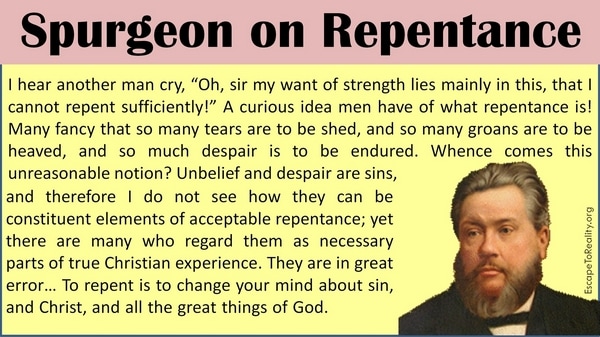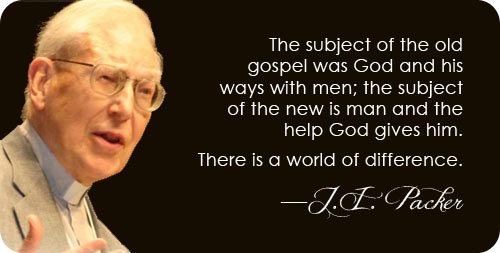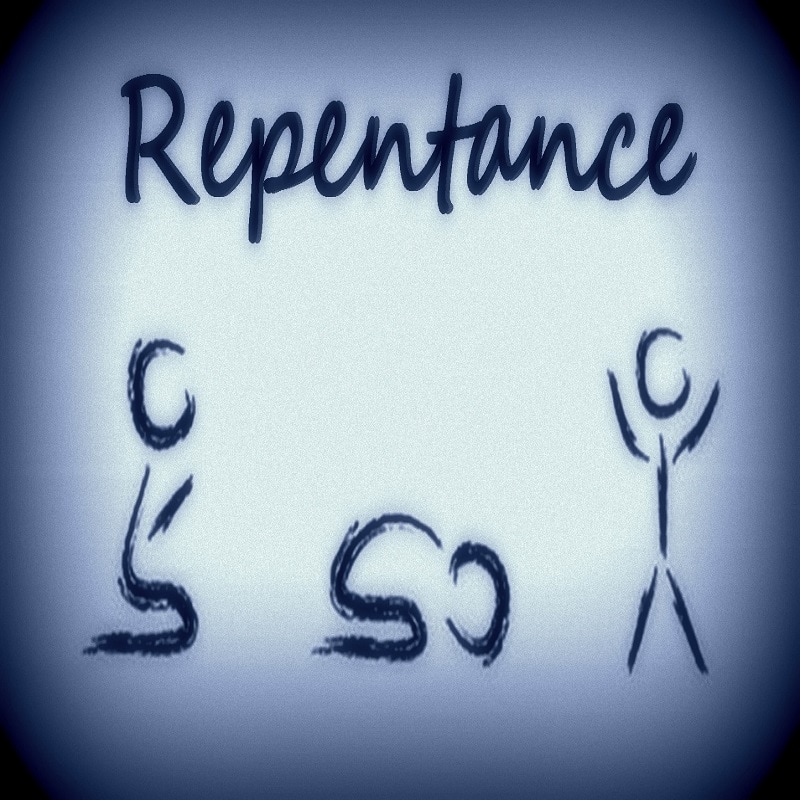Mobile Users: Our Multi-Media friendly articles are primarily created for desktop and tablets used in horizontal position only. Graphics and content order may display inaccurately thereby lessening the quality of your learning experience. Please feel free to utilize our PDF version on your mobile device HERE.
Article No. 4

Repentance is a profound and central concept to the Christian faith. In fact, few practices are of greater importance and interest to the Bible-Believing Christian (BBC) than a right understanding and application of repentance. The chief aim of all BBC’s should be to experience transformed desires where God is so supremely (and joyfully) valued within our hearts and lives that He is supremely glorified. Therefore, repentance becomes the necessary conduit through which our hearts are powerfully repositioned away from faulty desires that lead to death and towards renewed desires that lead to life. This antipathy towards your personal sin followed into action by efforts to move contra-directionally from it, is imperative beyond the grave. For even a brief survey of church history will reveal that nearly every theologian has universally taught that repentance is essential to our pardon from hell and our redirection towards heaven.

Believe it or not, there is actually a wrong way to repent. In fact, faulty thinking and application of this spiritual act can lead to catastrophic consequences for both an individual's physical and eternal life. Wrong repentance can not only lead to emotionally unhealthy individuals, but it can deceptively produce more death, leading to deeper sin. The Bible goes out of its way to communicate this reality. While God empathetically desires for our attention in the midst of our sin, our approach towards Him truly makes all the difference regarding rather our repentance will lead to life or death…liberation or condemnation. If your desire is not to run towards God; but instead you are compelled to flee from Him, something has gone awry.
This type of behavior is a good indicator that you are trusting more in the power and shame of your sin as opposed to trusting in the power and freedom that comes from Christ's blood-bought sacrifice for your sin. This type of behavior shows that you trust your acceptance before God based on your works more than you trust your acceptance to be based in Christ's work. The necessity of intimacy and fellowship with God is quintessential towards the healing of your heart and the ability to overcome indwelling sin that leads to outward acts of evil. Your work towards godly repentance and change must be rooted in joy and the pleasure of glorifying God; not in earning His favor. 2nd Corinthians 7:10 tells us that godly grief produces a repentance that leads to salvation without regret, whereas worldly grief produces death. In other words, worldly grief produces death. And death produces more death. |
Charles Spurgeon writes:
"Repentance is a discovery of the evil of sin, a mourning that we have committed it, a resolution to forsake it. It is, in fact, a change of mind of a very deep and practical character, which makes the man love what once he hated, and hate what once he loved." J. I. Packer writes:
"Repentance means turning from as much as you know of your sin to give as much as you know of yourself to as much as you know of your God, and as our knowledge grows at these three points so our practice of repentance has to be enlarged." John Piper writes:
"Repenting means experiencing a change of mind that now sees God as true and beautiful and worthy of all our praise and all our obedience." |

A More Robust Definition of Repentance:
"Repentance is the brokenhearted position of an authentic Bible Believing Christian whom Jesus has already ushered into a saving knowledge of His blood-bought gift of salvation. Because the BBC’s spiritual vision has been providentially awakened by God, one becomes exceedingly aware of multitudinous perversions of both their will and their affections when juxtaposed to Jesus’ perfected righteousness. This heightened awareness of pervasive indwelling sin is so disturbing that self-castigation ensues. The evolution of genuine remorse germinates from the heart (affections) and makes its way to the mind (the will). As the heart and mind are re-calibrated by The Word and passion of Christ; the BBC progresses beyond contrition to decisive action to mortify indwelling sin... not by self-punishment or disproportionate focusing of external behaviorism, but by the newly desired affections for Jesus and the re-calibrated will to please Him…finding comprehensive satisfaction in doing so. Finally, external behaviors and actions are altered not primarily by compulsion, fear, or anxiety of impending divine punishment; but instead, wrong behavior is altered by the continuous desire for thy will and then thy actions to reflect the nature of Jesus. For He is a representative of our pre-fallen perfected state by which we were...at that time...not separated from God. Therefore, repentance is the act of willfully and joyfully returning to and preparing for communion with our Creator." ~ Brandon K. Rachal
"Repentance is the brokenhearted position of an authentic Bible Believing Christian whom Jesus has already ushered into a saving knowledge of His blood-bought gift of salvation. Because the BBC’s spiritual vision has been providentially awakened by God, one becomes exceedingly aware of multitudinous perversions of both their will and their affections when juxtaposed to Jesus’ perfected righteousness. This heightened awareness of pervasive indwelling sin is so disturbing that self-castigation ensues. The evolution of genuine remorse germinates from the heart (affections) and makes its way to the mind (the will). As the heart and mind are re-calibrated by The Word and passion of Christ; the BBC progresses beyond contrition to decisive action to mortify indwelling sin... not by self-punishment or disproportionate focusing of external behaviorism, but by the newly desired affections for Jesus and the re-calibrated will to please Him…finding comprehensive satisfaction in doing so. Finally, external behaviors and actions are altered not primarily by compulsion, fear, or anxiety of impending divine punishment; but instead, wrong behavior is altered by the continuous desire for thy will and then thy actions to reflect the nature of Jesus. For He is a representative of our pre-fallen perfected state by which we were...at that time...not separated from God. Therefore, repentance is the act of willfully and joyfully returning to and preparing for communion with our Creator." ~ Brandon K. Rachal
There is actually no direct word that translates to mean repentance throughout the ENTIRE Old Testament. Although, one should not be quickly alarmed. For biblical vocabulary surrounding the central themes of repentance is truly rich. In fact, the theme of repentance is found throughout the entire Bible; always expressing itself as an idea irrespective of whether the word is used directly. Specifically regarding the Old Testament, two Hebrew words are often translated to express the theme or idea “to repent”: the verbs nacham and shub.
|
Nacham:
The Hebrew and Aramaic Lexicon of the Old Testament by Koehler, Baumgartner, Richardson, and Stamm says nacham means “to be sorry, come to regret something, to repent” as in Job 42:6, “Wherefore I abhor myself, and repent in dust and ashes.” In their commentary on the Old Testament, Keil and Delitzsch remark, “Nacham is the exact expression for metanoeo, the godly sorrow of repentance not to be repented of. He repents (sitting) on dust and ashes after the manner of those in deep grief.” |
Shub:
This term is the twelfth most common word in the OT. It has a basic sense of "to turn," "to turn back," "to go back," or "to return." In the vast majority of its uses it refers to literal changes of direction. For example, Moses, after being in the tabernacle, "would return to the camp" (Exod 33:11). According to Bible.Org, of its 1,056 OT uses only 203 occur in religious contexts. In all but one passage those religious uses refer to Israel or God turning toward or away from one another. |
There are four types of ways to think through God's turning or resuming throughout the Old Testament. The blessing and curse is spoken of in the Mosaic Covenant (cf. Leviticus 26; Deuteronomy 28) where the Lord promised that He would bless obedience and cursed us obedience. Often times, Shub was used to refer to the turning of the Lord. Therefore, it is quite obvious it was not being used in a technical form. Why? Because the technical term would always refer to someone's sinful ways and the turning from them. This type of term could never be associated with God. Instead, let us look at four types of ways to think through the Lord's turning:
|
#1
The Lord returned Israel's evil onto itself: He withdrew His blessings and sent temporal judgments whenever the nation turned away from Him in disobedience. |
#2
The Lord did not turn back His anger from Israel. He withdrew temporal judgments and sent blessings whenever the nation turned away from her sinful deeds and turned back to Him in obedience. |
#3
The Lord returned Israel to its former place of blessing. Whenever Israel turned back to the Lord from her sinful ways, He restored the nation's blessings. |
#4
The Lord returned to the nation. In passages containing this fourth type of turning, no specific objects were mentioned. This rare expression referred generally to the Lord removing temporal judgments and sending temporal blessings. |
Considering the Bible's prioritizing…and centralizing of the redemptive theme of repentance throughout its whole, one should take heed to a daily practice of personal reflection upon the “health and wellness” of their heart; evaluating by Truth (The Word~namely The Bible) and Spirit (specifically the Holy Spirit made available by God through Jesus) what sin may dwell within… ready to BLOOM and DESTROY. Living in an increasingly post-modern Christian context, the BBC’s intentionality towards this aim (repenting upon maturing upon repenting upon maturing into life) must become both joyfully-rewarding and instinctual to the will of the man. For it is by faith through Christ….manifested in authentic repentance; which then moves away from thy natural will...while simultaneously being drawn into God's perfected will...made evident by Christ-centered fruitful living and harvest. In reality, a decisive action to NOT repent is largely equivalent to a decision TO NOT follow Christ. It's that essential.
In other words, salvation (your eternally adoptive status) and repentance (your upward pipeline from death to life in Christ) go hand-in-hand… indeed they are inseparable.
1. Repentance is a profound and central concept to the Christian______________
2. What is a BBC?
3. A brief survey of church history will reveal that nearly every theologian has universally taught what?
4. What were two wrong types of behavior that were illustrated it to show incorrect forms of repentance?
5. What two Hebrew words are often translated to express the theme or idea “to repent” in the Old Testament?
6. Explain what those two words mean?
7. What are the are four types of ways to think through God's turning or resuming throughout the Old Testament?
8. Why should one should take heed to a daily practice of personal reflection upon the “health and wellness” of their heart?
9. Create your own definition of repent and share it with our content authors for feedback HERE. (we would love to respond with our feedback!)
2. What is a BBC?
3. A brief survey of church history will reveal that nearly every theologian has universally taught what?
4. What were two wrong types of behavior that were illustrated it to show incorrect forms of repentance?
5. What two Hebrew words are often translated to express the theme or idea “to repent” in the Old Testament?
6. Explain what those two words mean?
7. What are the are four types of ways to think through God's turning or resuming throughout the Old Testament?
8. Why should one should take heed to a daily practice of personal reflection upon the “health and wellness” of their heart?
9. Create your own definition of repent and share it with our content authors for feedback HERE. (we would love to respond with our feedback!)











